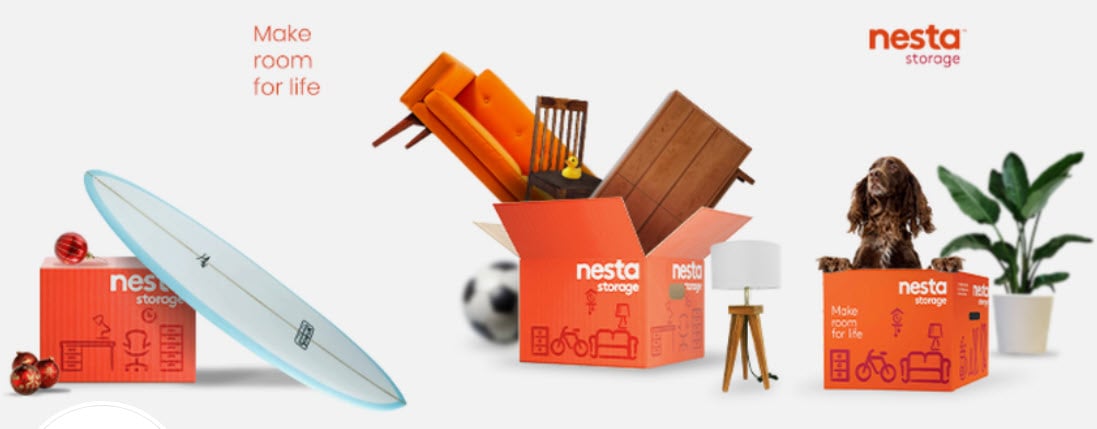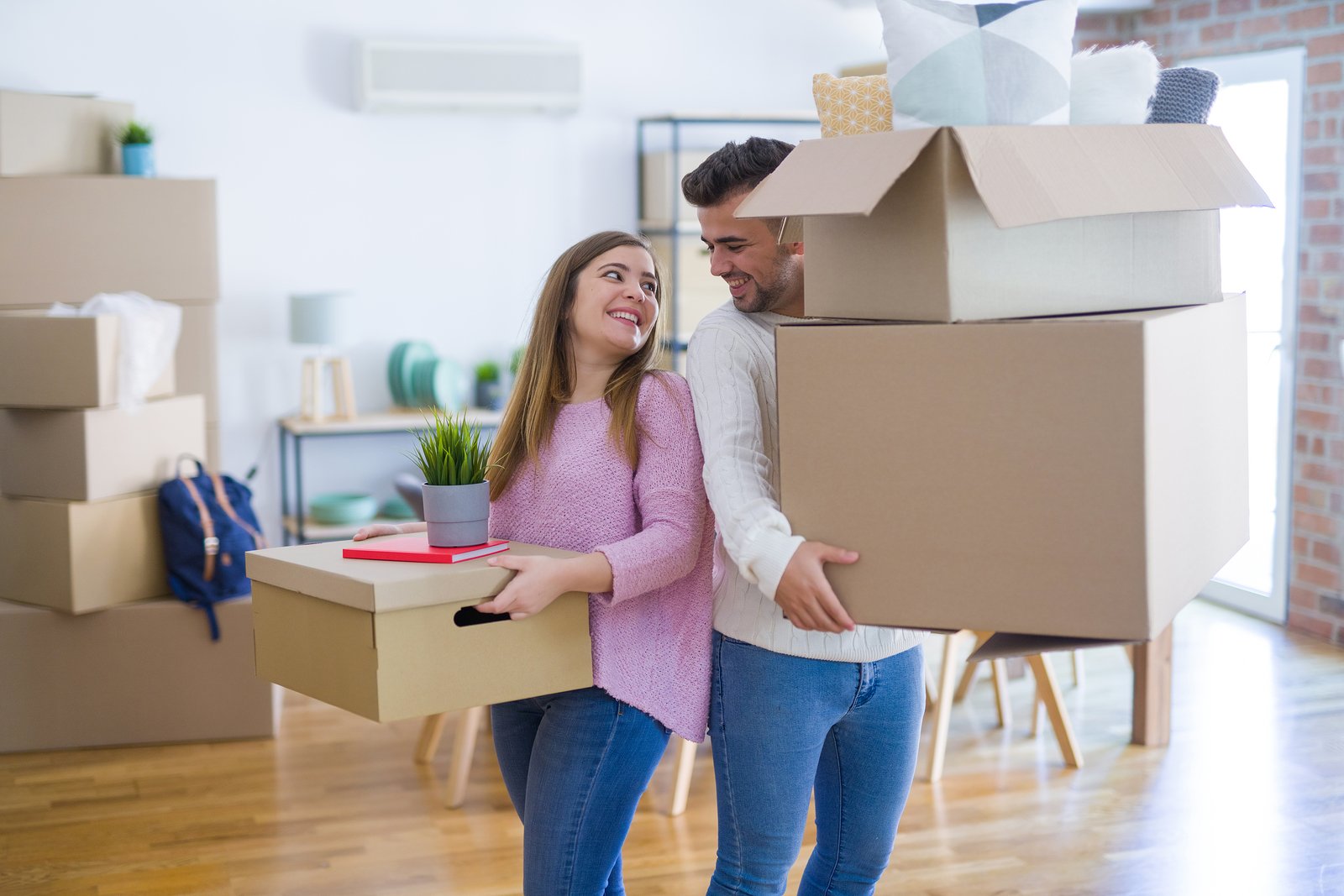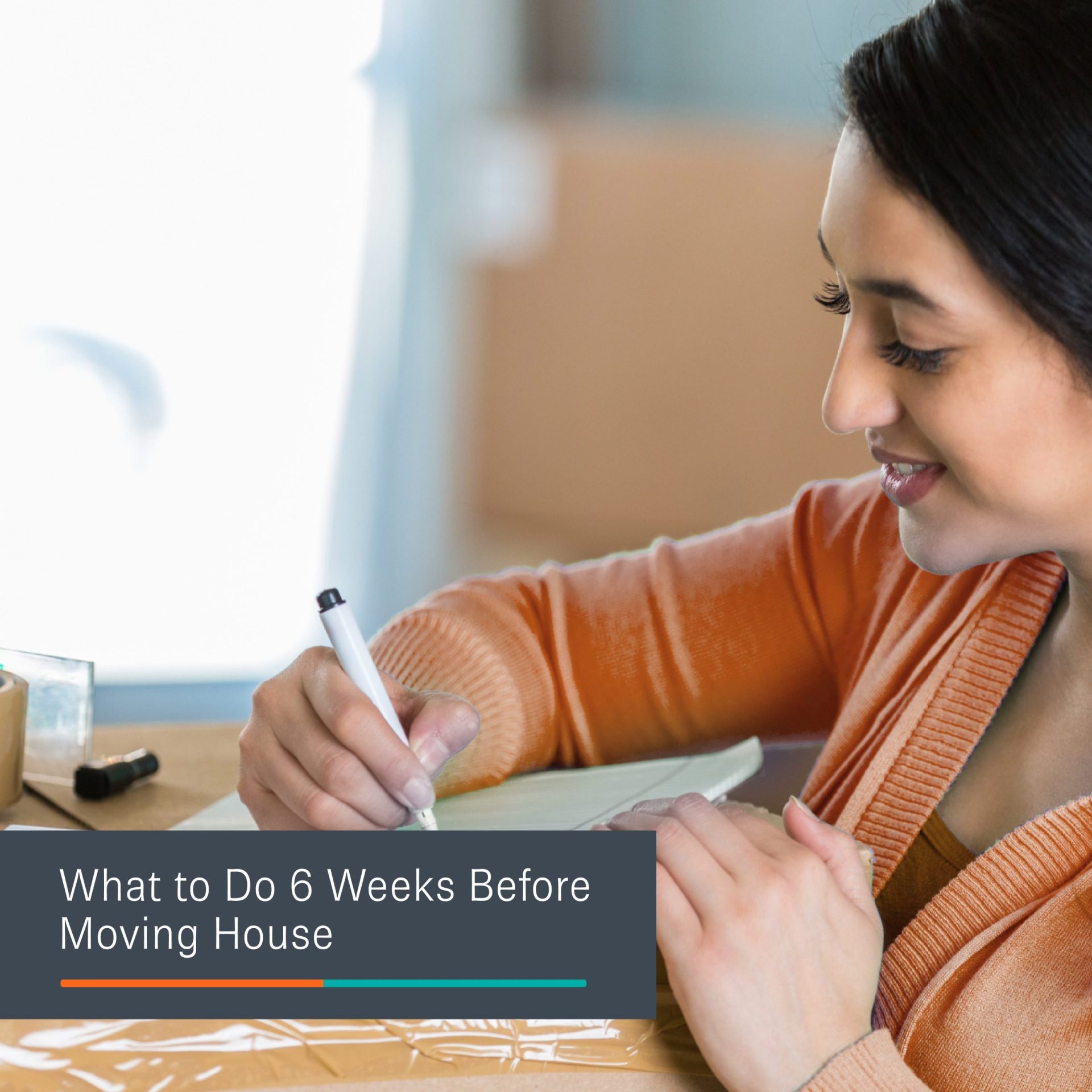Mess Causes Stress – How Decluttering Can Clear Your Home and Your Mind
Table of Contents
- Mess Causes Stress – How Decluttering Can Clear Your Home and Your Mind
- Why Mess = Stress
- 8 Smart Home Decluttering Tips to Reduce Stress
- Understanding Hoarding Habits and When to Seek Help
- Not Sure What to Throw Away? Here’s Help
- Decluttering All Year Round? We’ve Got You Covered
- Declutter Without Losing What Matters
- Ready to Declutter Your Life?
- Ready To Start Your Nesta Storage Journey?
After a long day, all most of us want is to come home, relax, and unwind. But when you’re surrounded by clutter, that peace can be hard to find. Whether it’s a messy living room, an overflowing drawer, or a cluttered kitchen counter, disorder in the home often leads to disorder in the mind.
The good news? Unlike many of life’s daily stresses, this is one you can control. And it starts with a simple step: decluttering.
The subtle, continuous art of decluttering your home is one of the few issues that’s totally within our control. Manage it properly and you’re on track to a stress-free life.
Why Mess = Stress
You’re not imagining it – there’s real science behind the stress caused by clutter. According to Psychology Today, a messy, cluttered environment can:
- Bombard your brain with excess stimuli, leading to sensory overload.
- Distract you and make it hard to focus, even on something as simple as watching TV.
- Increase cognitive activity, making it harder to mentally switch off.
- Lead to cognitive overload, where your brain struggles to process the constant visual reminders of chaos.
- Signal that your work is never done, leading to ongoing anxiety.
- Leave you feeling guilty or embarrassed, especially if unexpected visitors drop by.
- Hinder creativity and productivity by taking up the space you need to think clearly.
- Frustrate you when you can’t find what you need – like your keys in a rush.
Put simply, clutter is more than an eyesore – it’s a mental weight.
Over time, constantly living in a chaotic environment can increase stress levels and even contribute to depression symptoms. Our homes should be a haven, but for many people, they’ve become stressful homes filled with physical and emotional clutter.
But with a few smart strategies (and a little help from Nesta!), you can lighten the load and make you a master of your own destiny when it comes to understanding how to declutter your own personal space without the added stress.
8 Smart Home Decluttering Tips to Reduce Stress
Before you dive in, remember that successful decluttering isn’t just about tidying up – it’s about creating a mindset shift. It helps to have a clear strategy so you don’t get overwhelmed or give up halfway through.
The following tips are designed to break the process down into manageable, stress-reducing steps that will help you stay focused, motivated, and in control of your home and your mental health.
1. Declutter Together
If you live with others, don’t go it alone. Clutter often builds up in shared spaces, so make it a team effort.
Assign areas of responsibility and encourage everyone to take ownership of their space. If you’re flying solo, focus on one room at a time – progress feels more rewarding when it’s visible.
2. Create a Home for Everything
Designate specific places for the things you use regularly. Store everyday items in drawers or cupboards rather than leaving them out in the open.
Open surfaces should be kept as clear as possible – less visual clutter equals less mental clutter.
This habit helps reduce cognitive overload and allows your mind to rest in a clean space.
3. Be Ruthless About What You Keep
If you don’t use it, want it, or need it, it’s time to let it go. Sell it, donate it, recycle it – just don’t hang onto things that are taking up valuable space.
For those rare or sentimental items you can’t part with, consider putting them in secure storage so they’re not taking up room at home.
This helps keep clutter under control without making you feel like you’re losing something important.
4. Store It – and Stick to It
Decluttering isn’t a once-off project – it’s a habit. Once you’ve assigned a place for something, be disciplined about putting it back.
This is especially important for items stored in external self-storage units – keep an inventory, label boxes, and always return items when you’re done.
By keeping your cluttered home under control, you prevent the build-up of chaos that leads to stressful homes and burnout.
5. Set Up a “Pending” System
From unpaid bills to to-do lists, a lot of clutter is simply the result of unfinished business. Create a pending folder, physical or digital, to keep track of what needs attention.
At home, consider a message board or family rota to manage tasks and avoid piles of paperwork. This system is a great way of clearing clutter before it overwhelms you.
6. Keep Paper Clutter in Check
Paper is one of the biggest culprits when it comes to mess. Junk mail, menus, newspapers – it all adds up.
Opt for paperless billing, unsubscribe from unnecessary post, and recycle regularly. A few minutes a week can save you from a major pile-up later on.
7. Clean as You Go
You don’t need to wait for a big clean-up session. Get in the habit of tidying up spaces as you finish using them.
It only takes a moment to put things away, but it makes a big difference in keeping your space clutter-free and stress-free.
8. Make It Enjoyable
Decluttering doesn’t have to be a chore. Put on some music, set a timer, and make it a game.
Reward yourself when you hit a milestone. The more enjoyable you make the process, the more likely you are to stick with it.
Understanding Hoarding Habits and When to Seek Help
For some people, mess isn’t just a matter of inconvenience – it may be a sign of a deeper issue such as hoarding disorder. Unlike typical clutter, hoarding habits are often linked to anxiety, depression, and an overwhelming emotional attachment to items others might see as worthless.
If you or someone you know struggles to throw things away, even when the home becomes unsafe or unliveable, it could be time to talk to a professional. Left unaddressed, hoarding can contribute to dangerously high stress levels, social withdrawal, and worsening depression symptoms.
There’s no shame in seeking support – and starting small with manageable steps or external storage can be a positive and empowering first move.
Not Sure What to Throw Away? Here’s Help
Struggling to decide what stays and what goes? You’re not alone – letting go can be hard. But we’ve made it easier with our helpful guide: Here’s How to Decide What to Throw Away When Decluttering.
This quick-read resource gives you practical tips and questions to ask yourself, so you can declutter confidently without regret.
Decluttering All Year Round? We’ve Got You Covered
Staying clutter-free is easier when you tackle it bit by bit. That’s why we created the Ultimate Declutter Calendar – your month-by-month guide to maintaining a tidy, organised home year-round.
Whether it’s spring cleaning or an autumn wardrobe refresh, our calendar gives you bite-sized tasks that keep the overwhelm at bay and your home in balance.
Declutter Without Losing What Matters
One common misconception is that decluttering means getting rid of everything. It doesn’t.
Sometimes, it simply means removing items from your immediate space – not your life. That’s where Nesta Storage can help.
With secure personal storage units in a range of sizes, you can hang on to the things that matter without crowding your home.
Whether it’s seasonal decorations, sports gear, baby clothes or heirlooms, our facilities give you the extra space you need – and the peace of mind you deserve.
Let yourself experience ‘the magic of tidying’ – that unique sense of calm that comes with a clean space, free from unnecessary distraction.
Ready to Declutter Your Life?
If mess is stressing you out, take action. Declutter your space, clear your mind, and make room for what really matters. And if you need a little extra space, Nesta has you covered.
Explore our flexible self-storage solutions across six convenient Dublin locations today and start your journey to a more peaceful, clutter-free home.
Table of Contents
- Mess Causes Stress – How Decluttering Can Clear Your Home and Your Mind
- Why Mess = Stress
- 8 Smart Home Decluttering Tips to Reduce Stress
- Understanding Hoarding Habits and When to Seek Help
- Not Sure What to Throw Away? Here’s Help
- Decluttering All Year Round? We’ve Got You Covered
- Declutter Without Losing What Matters
- Ready to Declutter Your Life?
- Ready To Start Your Nesta Storage Journey?
Related Posts
- January 14, 2025|1 min read







